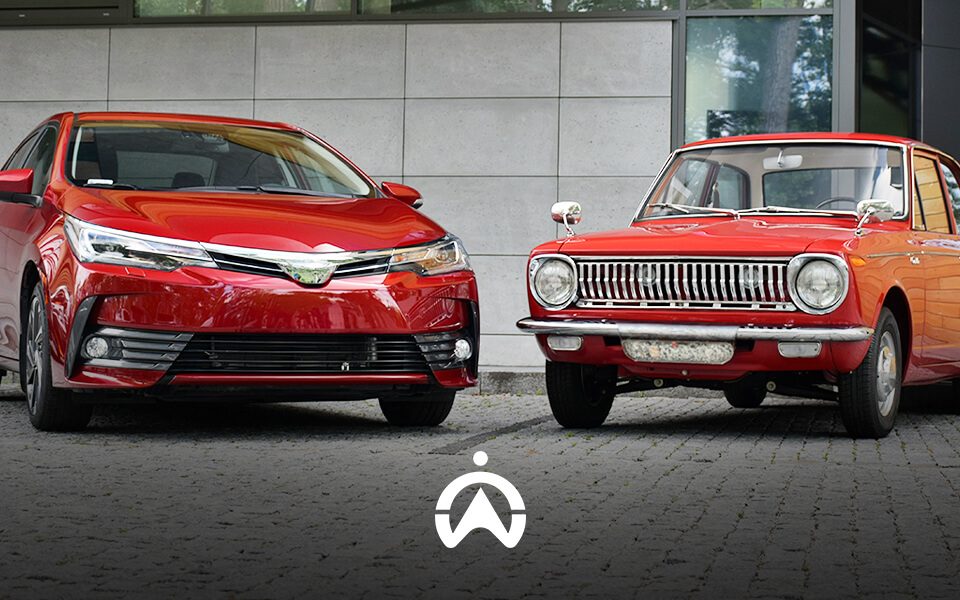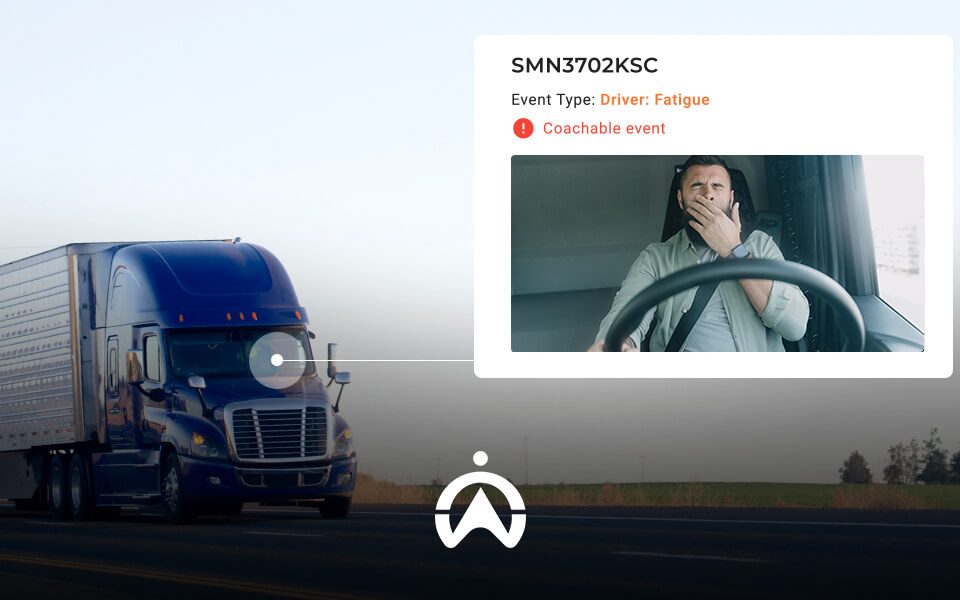Types of Vehicle Tracking System
Whether you drive a private vehicle or manage an entire fleet, investing in a reliable tracking system is crucial for safety, efficiency, and overall peace of mind.
There are many ways to track vehicles, and not all tracking systems are equal. Some are better suited for urban fleets, while others excel in remote logistics.
It is important to pick the system that best suits your needs. Today, we look at the different types of vehicle tracking systemsand why our solutions should be your top pick.
What is a vehicle tracking system?
A vehicle tracking system (VTS) is an electronic solution designed to enhance vehicle safety and help fleet businesses improve productivity levels by monitoring vehicle locations and other data. The system connects fleet management software with vehicle tracking devices, which allows it to gather information about the vehicle and its driver.
Vehicle tracking systems have become popular over the years as the technology continues to reach new levels. This must-have solution comes in various forms, configurations, and sizes. Let’s explore and understand each of them.
Common types of vehicle tracking systems
Choosing a tracking device that best suits your needs can be difficult if you don’t know the options available and how they work. Let’s explore the different types of vehicle tracking systems:
1. Active tracking systems
These vehicle tracking systems are usually installed inside the vehicle, connecting to a power source that enables the collection and transmission of data in real time. The data is then stored and can be easily accessed in real-time via software.
Here are a few examples of active vehicle tracking systems and how they work:
- Cellular network tracking systems
This is a method where mobile networks are used to transmit the tracked data in real time; the data from the device is sent to a cellular tower, which then conveys it to a service provider over an internet connection. Cellular network tracking systems work best in areas with good mobile network coverage. The range for this form of vehicle tracking system can extend across cities and countries, depending on the coverage by the network provider. Cellular network tracking systems are ideal for people living and travelling in urban areas with good signal coverage.
- Satellite tracking systems
In order to understand satellite-based tracking, you first need a brief understanding of the Global Navigation Satellite System.The Global Navigation Satellite System (GNSS) is a satellite-based tracking system that uses satellite networks such as the Global Positioning System (GPS) to collect and transmit data from a tracking device. This fascinating technology uses time signals broadcast along a line of sight to let electronic receivers calculate their location with great precision. This method of vehicle tracking is therefore more reliable, making it an ideal solution for fleets and individuals operating in remote areas with limited mobile network access, as the coverage is more reliable and offers exceptional accuracy.
- GPS-based tracking systems
GPS-based vehicle tracking systems and satellite-based systems are interrelated but are not exactly the same thing.The key difference is that a GPS tracking system is satellite-based, but not all satellite-based tracking relies solely on GPS. An article by Online Science explains how there are other satellite navigation technologies, each managed by a different country, such as GLONASS (operated by the Russian Federation), BeiDou (operated in China), and Galileo (operated by the European Union). GPS was developed and is operated by the United States of America, and is the most commonly used. GPS trackers are ideal for individuals for personal safety and for fleet businesses for vehicle monitoring.
- OBD-based tracking systems
Another form of active tracking is OBD-based technology. This approach involves plugging a device into the vehicle’s On-Board Diagnostics (OBD-II) port. The device is easy to install and allows fleet managers to have access to crucial information such as vehicle health, mileage, and fuel levels, helping enhance fleet efficiency. OBD trackers allow both fleet managers and private car owners to monitor risky driving behaviours such as speeding and harsh braking, making them the perfect solution for both personal and business purposes.

2. Passive tracking systems
Passive vehicle tracking systems also make use of GPS to track vehicle location. The only difference is that you can’t get real-time updates in a passive system. They record the data and store it in a memory card or hard drive for later access. Once connected to a computer, the data will be available for users to view. This type of tracking is ideal for users who need access to historical trip data rather than real-time updates.
3. RFID-Based Tracking Systems
An RFID tracking system is one that is based on radio frequency identification technology. It can track and identify vehicle locations in real-time as well as record entry and exit information. The system is composed of three components: a tag, a reader, and vehicle tracking software. The tag is attached to the vehicle, and the reader emits a radio signal that activates the RFID tag; the software is then responsible for data storage and analysis. This type of technology has a short range and is an ideal solution for driver identification or tracking in indoor environments such as warehouses.
4. Internet-based (IoT-enabled) tracking systems
IoT, or the Internet of Things, integrates sensors and connectivity technologies such as Wi-Fi, cellular networks, and satellite communications to enable advanced vehicle tracking and remote diagnostics. The sensors and GPS devices collect information from the vehicles, and the data is then transmitted via the internet to a central platform. From there, the data is processed and turned into easily understandable information for fleet managers. This technology helps with predictive maintenance, finding optimal routes for deliveries, real-time monitoring and alerts, driver behaviour analysis, and much more.
A table comparison of the different tracking systems
An easy way to understand the key differences between the various types of vehicle tracking systems is through a table. Here’s a quick breakdown:
How to choose the right vehicle tracking system
The best vehicle tracking system for you depends on your specific needs. Here are some factors to consider:
- Budget and ROI: Most individuals require basic tracking services, such as Stolen Vehicle Recovery and the ability to view vehicle locations at any time. Additional features, such as driver behaviour monitoring or advanced analytics, are considered an extra layer of protection and will depend on how much you are willing to spend. On the other hand, businesses look for vehicle tracking services from an investment point of view. The price is not a huge concern, but the savings and profit as a result of improved productivity are what matter the most. Fleet managers should look into the type of data they require the most to boost profits.
- Intended use: The solutions you choose will also depend on the intention. For example, delivery fleets require advanced solutions such as route optimisation capabilities, driver alerts, driver identification, and preventative maintenance. Personal vehicles are typically tracked for theft prevention and to ensure the safety of family members.
- Area of operation: If your vehicle is constantly in remote areas, then you need a solution that can give you accurate location updates and data regardless of the low network coverage.
Cartrack case study: Mr Build
Mr Build is a well-known hardware store that specialises in woodworking, timber, plumbing, cement, and a wide range of home decor. They have a workforce of 200 across seven branches and a fleet of about 40 vehicles that deliver their products to customers.
Their main challenge was keeping track of where drivers and vehicles were during deliveries. They could not pick up any signs of drivers experiencing delays, which meant customers could not be updated on deliveries.
How Cartrack vehicle tracking solutions transformed operations:
- Our vehicle tracking system allows Mr Build to see exactly where their vehicles are at any given time. They also get detailed history reports of all completed trips. This also means they no longer waste time and resources trying to call and locate drivers.
- The live-location tracking feature allows Mr Build to manage delivery updates and inform customers. There are now a limited number of unnecessary route deviations, boosting productivity and promoting driver accountability.
- As an extra layer of security, Mr Build has added our CarWatch feature to their package. When activated, this feature acts as a virtual car guard and alerts Mr Build and our 24-hour control room service the moment any unauthorised vehicle movements occur on parked vehicles.

Explore our vehicle tracking solutions to find the right fit
Cartrack makes use of most of the above-mentioned tracking technologies to give you solutions that you can access all on one platform. Here’s what we offer:
- GPS live-tracking
Always know where your vehicles are at all times. Cartrack devices use both satellite and cellular technology to ensure that you get accurate location updates, monitor driver routes, view location history, and ensure safety and efficiency.
- Stolen Vehicle Recovery
Vehicle theft remains a great concern in Botswana. In the unfortunate case of vehicle theft, Cartrack offers a stolen vehicle recovery service available 24/7 to ensure a swift response. We have skilled air and ground recovery teams available nationwide that are always on standby, plus we boast an average recovery rate of 90%.
- Driver monitoring
Our IoT-powered tracking devices give fleet managers the ability to keep an eye on driving behaviours such as speeding, harsh braking, excessive idling, rapid acceleration, and harsh cornering. Fleet managers will get alerts on these behaviours as well as detailed reports. Through this, managers can identify drivers who need training, which in turn promotes safer driving, reduces the chances of accidents, and helps the business avoid lawsuits and bad driving reviews.In addition, we have Driver Identification tags (DID), which help fleet managers instantly identify who is driving which vehicle. Preventing unauthorised drivers from using the wrong vehicles and also promoting driver accountability.
- Crash detection
Having instant access to your vehicle location also helps in situations where you need emergency services, such as an ambulance. As an extra layer of protection and through the power of our IoT-powered device, we have a crash detection service that allows us to detect collisions as they happen. From there, we will contact you or your loved ones and then send help.
- Preventative maintenance
Our advanced solutions help fleet managers keep a careful eye on vehicle maintenance; through this, they can get alerts on things such as worn-out brake pads, oil and water fluctuations, and engine health. This allows for a swift response before the issues get worse, reducing the chances of unexpected breakdowns, unplanned downtime, and costly repairs. It also helps the fleet remain compliant.
Invest in Cartrack vehicle tracking solutions today!
Cartrack is one of the leading companies in the vehicle tracking industry. We offer advanced features that cater to vehicle owners of all kinds. Whether business or personal, you will most certainly find what you need in our solutions. Reach out to us, and we’ll help you choose the best vehicle tracking system for you.


